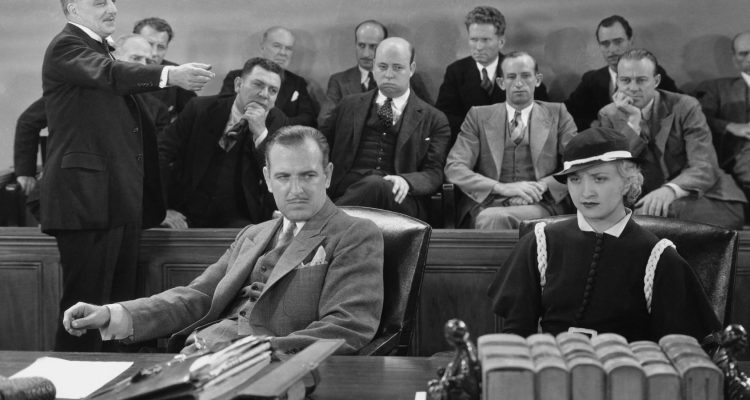Trial case lawyer in Pune
Trial case lawyer in Pune represent clients involved in litigation, both civil and criminal. Criminal lawyers may represent plaintiffs or defendants, the “people,” or the accused. Civil litigators take the side of a party in a dispute where no crime is involved. The trial lawyer’s job is to persuade a jury of a case’s facts and display them in a way that best supports their client’s position. Each piece of evidence must be presented and disputed according to a complicated set of rules. On days out of court, trial lawyers review files and scheduling orders, contact witnesses, take depositions, and talk to clients. On court days, lawyers argue motions, meet with judges, prepare scheduling orders, select jurors, and argue cases. The preparation for a trial can take many months. Due to the tremendous cost of litigation, however, most cases settle before they ever reach trial. Trial law requires excellent analytical skills. Litigators use their knowledge of legal precedents to analyze the probable outcome of a case. The career comes up with various intellectual challenges every day, which utilizes not only the analytical skills but also the problem-solving skills of an individual. The job offers utmost satisfaction and is emotionally rewarding. The work of a Trial Lawyer never gets monotonous, and the learning never stops. A Trial Cases Lawyer enjoys plenty of privileges and perks, which include financial advantages, office facilities, etc.
A Trial case lawyer in Pune is the most popular branch of lawyers that not only presents the client in front of the court and jury but also defends them to prove their non-guilty. The duty of a Trial Lawyer is to counter and argue the case at hand with the legal findings and their ability. Before representing a client, a Trial Lawyer meets with the client to understand the intricacies of the case. When out of the court, a Trial Lawyer schedules orders, reviews files, contacts witnesses, talks to clients, and takes depositions. When inside the courtroom, the lawyer prepares scheduling orders, meets with judges, argues motions, selects jurors, and argues cases. In order to be a Trial Lawyer, an aspirant must have at least completed a bachelor’s in law. After getting a license from the government, they can work as a full-time Trial Lawyer. Individuals with at least 2 to 3 months of experience get first-hand experience, making them understand the profession better and tackle the cases faster. With sound legal knowledge, analytical approach, and excellent communication skills, anyone can be a successful Trial case lawyer in Pune.
Responsibilities of a Trial Lawyer
The general responsibilities of a Trial Lawyer are specified below.
- To represent a client in a trial and to argue the case for them.
- To study judicial decisions and to research law relevant to the case they have taken over.
- Meet and update the client regularly and keep them informed about the developments.
- To provide pointers to convince the jury and judge about the client’s innocence.
- To collect and examine all the necessary evidence in favor of the client.
- Discuss the options and strategies with the client that needs to be adopted at the trial.
- To cross-examine witnesses, counter-argue, and present the case of the client in court.
Criminal cases incorporate approving public sets of accepted rules as exemplified in the laws, with the public authority prosecuting individuals or establishments. In a criminal case, the public authority brings charges against the individual attested to have completed the bad behavior. In a criminal fundamental, a jury investigates the verification to pick whether, “undeniably,” the prosecutor executed the bad behavior being alluded to. We provide the best Trial cases Lawyer in Pune. A fundamental is the public position’s opportunity to battle its case, in the longing for obtaining a “responsible” choice and a conviction of the disputant. A fundamental in-like manner tends to the defense’s chance to discredit the public power’s evidence and to offer its own occasionally. After the different sides have presented their disputes, the jury considers it as a social event to consider them to be obligated accountable for the bad behavior/infringement charged.
Cr.P.C. is an expansive and exhaustive procedural law for coordinating a criminal starter in India, including the way for a variety of evidence, evaluation of witnesses, questioning of accused, catches, safeguards and system to be embraced by Police and Courts, bail, the pattern of criminal primer, strategy for conviction, and the advantages of the charged for a sensible fundamental. The technique for a criminal starter in India is in a general sense, other than as regardless given, addressed by The Code of Criminal Procedure, 1973. IPC is the fundamental corrective law of India, which is pertinent to all offenses, other than as may be given under some other law in India. IEA is a point-by-point bargain on the law of “verification,” which can be offered in the fundamental method of formation of the evidence in the starter, and the evidentiary worth, which can be affixed to such confirmation.
IEA similarly deals with legitimate presumptions, ace, and intelligent evidence. There are specific various laws, which have been set up to oversee culpability in exceptional conditions. Note that India follows the poorly arranged structure, where all things considered, the onus of check is on the State to exhibit the contention against the accused, and until and aside from if the charge against the censured is shown undoubtedly, the charge is dared to be guiltless. In certain remarkable cases, which may relate to mental abuse, etc., the onus of affirmation has been put on the accused person, who purports to be not responsible. India has a particularly developed criminal law and arraignment system, maintained by legitimate perspectives; regardless, there may be certain issues or concerns relating to the execution of the comparable by Police and execution by Judiciary. The courts in India, particularly High Courts and Supreme Court, have been proactively guarding the advantages of the accused.
In reality, even Article 21 of the Constitution of India has been translated extraordinarily incredibly to guarantee the rights, life, and opportunity of the occupants by joining the expected values guidelines. By the flowchart hereinbelow, an undertaking is being made to make the peruser immediately appreciate the pattern of criminal assessment and starter in India, as a lot of new associations and Ex-taps are coming to India. In light of shocking conditions, they may sometimes end up caught in pointless criminal cases. The law oversees two kinds of cases. Normal cases incorporate conflicts between people or establishments like associations. A typical case customarily begins when an individual or affiliation builds up that an issue can’t be handled without the mediation of the courts. In like manner cases, one of these individuals or affiliations brings suit.
A lawyer from Legal Act can offer the best service if they get all the information about your case and can solve your issue immediately.


